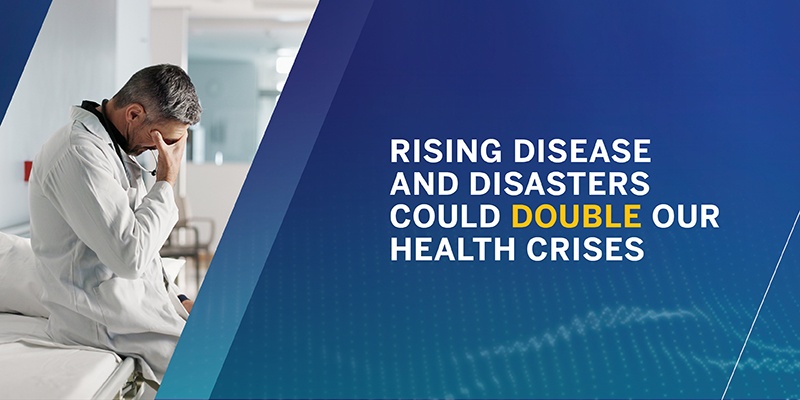
By Rob Dewig, Vice President, Healthcare Solutions:
Another natural disaster on the news. Buildings and homes destroyed. Flooded streets making safe travel impossible. Power and communications compromised. And, on top of all that, a public health emergency for which affected health systems are ill-prepared.
It could be next year, next month or even sometime next week, but it’s a likely future scenario according to the American Society of Health System Pharmacists’ (ASHP) 2024 Pharmacy Forecast.
A full 75% of the ASHP Forecast panelists anticipate that disease and natural disasters will double the frequency of public health emergencies. What’s more -- and more disconcerting -- is that 45% of this year’s panelists hold the position that health systems are only somewhat, or even very, unprepared if the frequency of public health emergencies doubles.
Really smart people being really worried about health system preparedness should be the alarm bell for system administrators and pharmacy managers to take a close, hard look at their current state and honestly assess their organization’s ability to effectively deliver continuous care under suboptimal conditions. It might not be a comfortable undertaking, and it may require the assistance of a third party, but it has to be done -- if providers are to ensure their viability when their patients, and their communities, will need them most.
The assessment must be comprehensive and include internal operations, staffing and infrastructure as well as external services and support delivered by third-party providers. Prioritization of preparedness may be relative, but it could be argued that supply chain surety is of paramount importance. Finding the balance between stockpiling necessary supplies while trying to avoid the impacts of drug shortages is crucial. Decision-makers would be well served to fully leverage available technology to ensure they maintain a medication inventory sufficient to treat those in need, whatever the conditions.
With all that health systems face today, asking for focused future preparedness may seem an untimely ask but, given how fast the weather seems to change these days, waiting is not an option.
Contributions from Greg Brownstein and Grace Nieters, Inmar Healthcare
